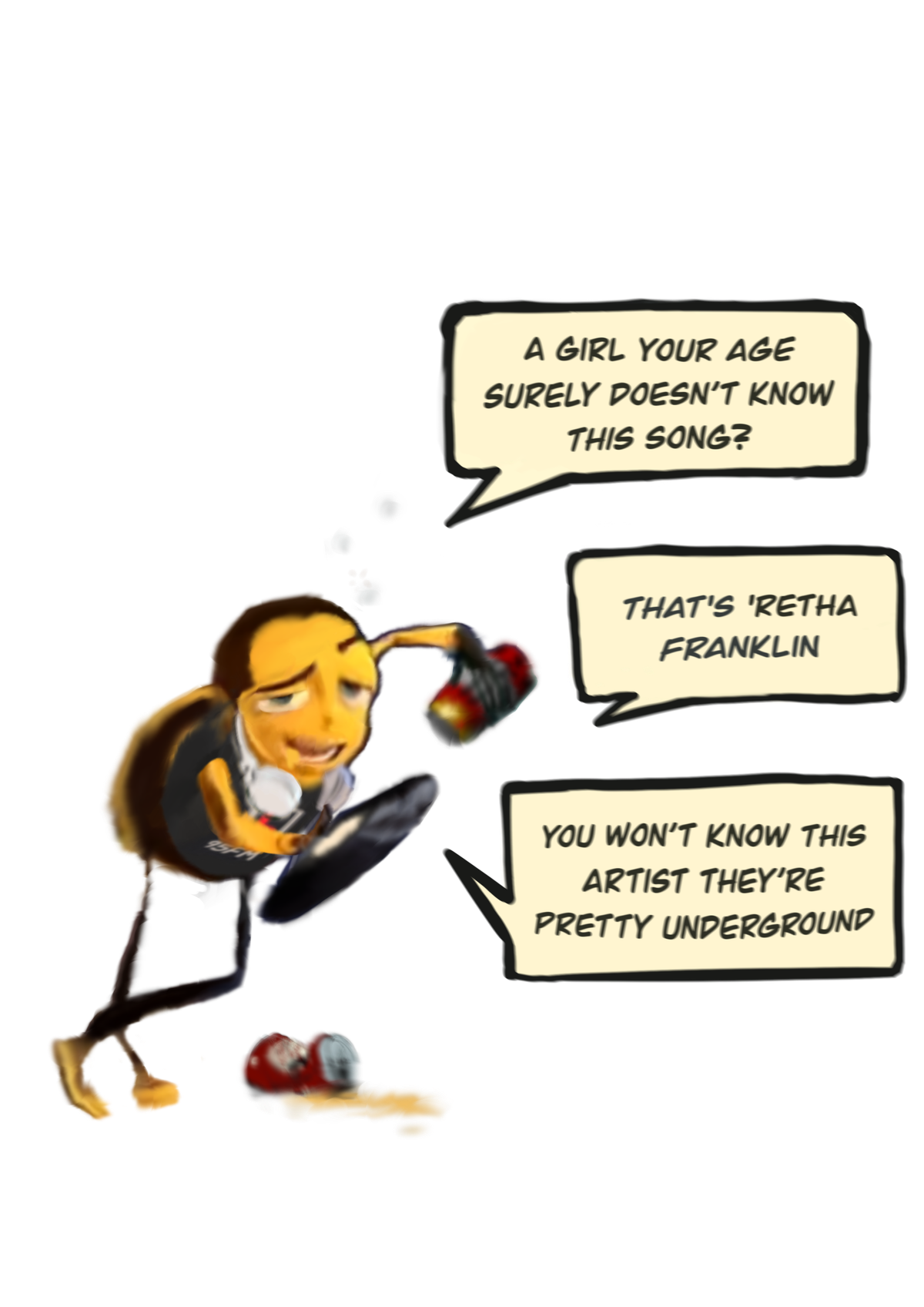Maybe you’re a snob? A Look Into Elitism in Music
Music forges connections and shapes identities, but what about when it is used to divide us? This article looks into the roots of elitism in music, analysing the connection between commonplace gatekeeping and widespread classism, sexism, and racism.

To some, music taste is just whatever they throw on when driving in the car; to others, it’s the most important facet of their personality. Now neither of these is not an inherently bad way to be, and music taste is so very personal. Music soundtracks our lives, which links it to some of our fondest memories or hardest times. However personal, music is still universally known to unite people and bring them together regardless of background, but we have all been trapped in a conversation with someone who swears that “you won’t know this artist, they're pretty underground”. Or worse, the “I bet you can’t name 5 songs” guy who quizzes you when you dare play one song from an artist they just can’t fathom you know.
I have been subject to my fair share of musical elitism working in a bar for three years that catered mainly to middle-aged men. God forbid I played anything made after 2000, or I would receive endless comments about the “rubbish” I deigned to put on. Although much of my music taste tends to be released before 2000, I was fighting an uphill battle. Even when I played music they knew or liked, I couldn’t escape the “a girl your age surely doesn’t know this song” comments followed by an in-depth lecture about their thoughts on the artist.
Music elitism, unfortunately, is inescapable whether it comes from a middle-aged man or one of your peers. Music is subjective, and people are passionate, and with that comes opinions, a lot of them. Elitism attached to music has been around as long as music itself, rooted in racism, classism, sexism, and the general subjugation of marginalised communities. While making music and consuming music is more accessible than ever before, it is still intrinsically linked to financial opportunity. Having access to the technology, instruments, and time to make music requires a certain level of financial privilege alone. Additionally, having the money and time to consume live music or pay for streaming services, or in the past, buy records, cassettes or other means to consume music relies on a level of financial freedom.
For many, music taste is shaped at a young age, and as such, the financial privilege to be able to access instruments or attend live performances can foster a judgement towards others who weren’t raised with the same opportunities. In the past, these financial barriers to music were evident in the labelling of classical or orchestral music as sophisticated and the view of other genres, such as folk, as simplistic.
The deep roots of classism in music coincide with an immense amount of racism that plagues the music industry. People of colour have produced a vast amount of the music that has created and revolutionised genres, yet are still consistently overlooked at many major award shows, and much of the limelight is dominated by white artists. When discussing musical elitism, it is important to remember where this comes from and the classist and racist narratives that can be perpetrated through elitism.
On the day to day, much of the contemporary elitism voiced by individuals focuses on the uniqueness of the music one listens to. I will be the first to say there is something satisfying about liking an artist that is uncommon, but where does this come from? Sure, if it is less known, it’s less likely to be overplayed, and many just enjoy an obscure song, but a large amount of judgment of “basic” music originates from sexism. If you were to list artists who are viewed as “basic,” I’m sure Taylor Swift, Olivia Rodrigo, or Sabrina Carpenter would be featured. The fact that most of the artists considered “basic” hold a fanbase consisting mainly of women, specifically young women, is not coincidental. Historically, it is a running theme that the interests of young women are considered unserious, uncultured, and disrespected. However, the musical interests of young men suffer far less ridicule than that of young women.
Now I’m not saying you can’t have opinions. Feeling strongly about the music you like, and opposingly the music you don’t is only natural. However, when the desire to judge others music tastes outweighs the desire to share your own or understand someone else, it is vital to remember where this elitist mindset may come from to ensure the perpetuation of harmful ideologies ends with you.





